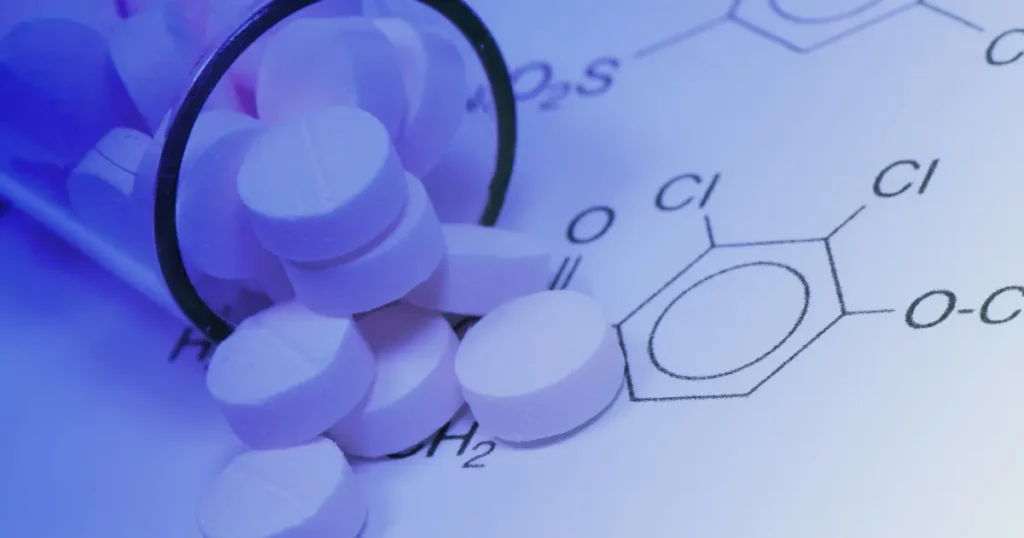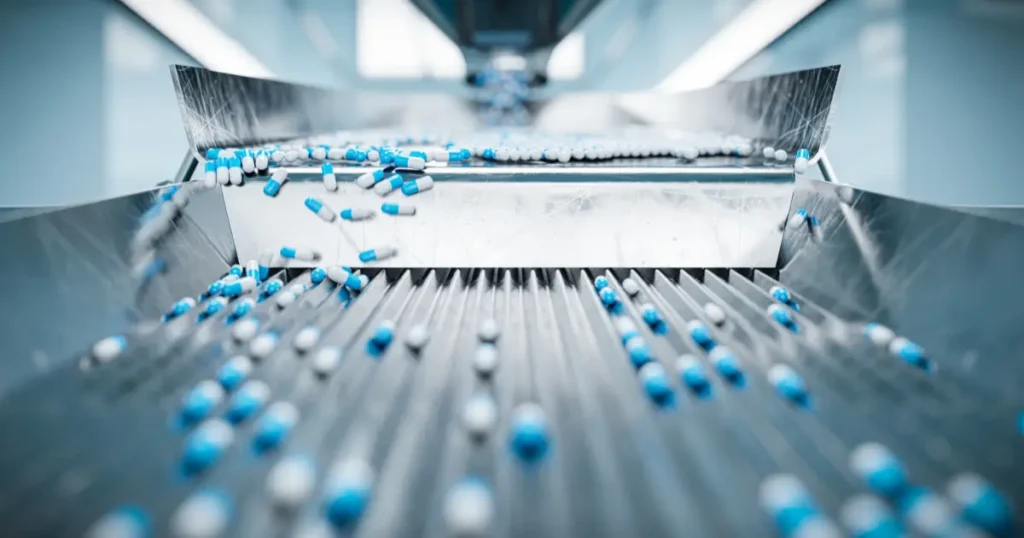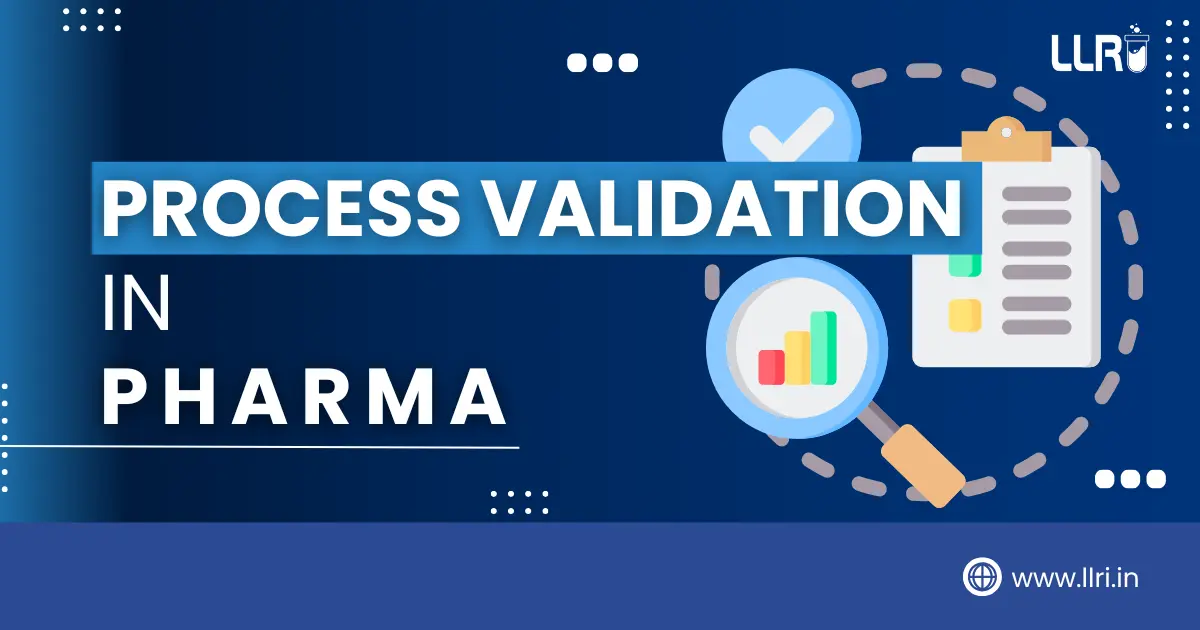Process Validation In Pharma: The pharmaceutical industry is one of the most regulated sectors, where product quality is non-negotiable. Imagine if a life-saving drug failed to work because of inconsistencies in its production process. And this is where the importance of process validation is highlighted – why?
Well, because the required standards of efficacy, safety, and quality that every batch of medicine should have been established by it. But what exactly is process validation in pharma? Why is it essential? What are the different stages of process validation? Let’s explore further, shall we?
What is Process Validation in Pharma?
The process validation definition in pharma as per the U.S. Food and Drug Administration (FDA) is:
“The collection and evaluation of data, from the process design stage through commercial production, which establishes scientific evidence that a process is capable of consistently delivering quality products.”
In simpler terms, process validation in pharma ensures that every step of drug manufacturing is tested, documented, and proven to produce consistent results. This process guarantees that medicines meet predefined quality attributes for efficacy, safety, and purity.

Purpose of Process Validation in Pharma
The purpose of process validation is to confirm that pharmaceutical manufacturing remains:
- Reliable – Every batch must be the same in terms of composition, strength, and quality.
- Safe – Variations in manufacturing can cause harmful effects on patients.
- Compliant – Global health authorities like the FDA, WHO, and ICH require validation for drug approval.
- Efficient – Validated processes reduce production errors and increase productivity.
A well-validated process prevents batch failures, recalls, and regulatory violations, guaranteeing a smooth and cost-effective production cycle.
Types of Process Validation in Pharma
There are four primary types of process validation in pharmaceuticals:
1. Prospective Validation
- Conducted before the drug manufacturing process begins.
- Based on pre-clinical data, experimental trials, and risk analysis.
- Confirms that the process design is robust and can consistently produce quality products.
- Essential for new drug formulations and newly developed processes.
2. Concurrent Validation
- Conducted during the actual commercial production of a drug.
- Useful when real-time validation data is required.
- Verifies that each batch is meeting regulatory standards before release.
Continue reading about the types of process validation…
3. Retrospective Validation
- Conducted for already marketed products that lacked prior formal validation.
- Uses historical production data, batch records, and laboratory results to validate the process.
- Not commonly used today due to stricter regulations demanding prospective validation.
4. Revalidation
- Conducted when there are changes in raw materials, equipment, formulation, or process parameters.
- Confirms that modified processes still comply with quality and safety standards.
- Required after major facility upgrades, technology transfers, or manufacturing relocations.
These different types of process validation in pharma help guarantee that products remain consistent, safe, and regulatory-compliant throughout their lifecycle.

Stages of Process Validation in Pharma
The stages of process validation are categorized into three key phases, as per FDA guidelines, and they are as follows:
Stage 1: Process Design
- The manufacturing process is designed and developed based on research and development (R&D) data.
- Critical Process Parameters (CPPs) and Critical Quality Attributes (CQAs) are identified to maintain consistency.
- Small-scale laboratory trials are conducted to optimize manufacturing conditions and refine process parameters.
Stage 2: Process Qualification
- The process undergoes full-scale testing to confirm it meets required quality standards.
- Includes Installation Qualification (IQ), Operational Qualification (OQ), and Performance Qualification (PQ) to validate equipment and operations.
- Validation batches are carefully analyzed for consistency and reproducibility in real-world production scenarios.
Stage 3: Continued Process Verification (CPV)
- Ongoing monitoring of the process helps identify and mitigate variations over time.
- This phase guarantees that the validated process remains under controlled and reliable conditions throughout production.
- Early detection of potential failures aids in preventing batch recalls and maintaining product quality.
Each stage plays an important in keeping the pharmaceutical manufacturing process scientifically sound, controlled, and compliant with regulatory standards.
READ MORE: Do You Know What Is Validation In Pharmaceutical Industry? Types N’ More!
Importance of Process Validation in Pharma
Why is process validation in pharma so important?
- Regulatory requirement – The FDA, WHO, and European Medicines Agency (EMA) require process validation for drug approvals.
- Patient safety – Ensures medicines are free from harmful variations.
- Product quality – Reduces batch failures, defects, and inconsistencies.
- Cost-effectiveness – Prevents manufacturing waste and costly recalls.
Industry Reputation – A validated process ensures trust and credibility in the market.
Without proper validation, drugs might fail in clinical trials, cause patient harm, or be rejected by regulators, leading to massive financial and reputational losses.

Benefits of Process Validation in Pharma
The benefits of process validation include:
- Better product reliability – Every batch meets quality and safety standards.
- Reduced waste & costs – Fewer batch failures mean lower production costs.
- Compliance with global regulations – Avoids legal penalties and drug recalls.
- Improved efficiency – Well-validated processes are faster, more reliable, and predictable.
- Improved patient trust – Patients receive safe and effective medications consistently.
By investing in process validation in pharma, companies can get smooth, error-free manufacturing with minimal disruptions.
How to Learn More About Process Validation?
Interested in learning more about pharmaceutical manufacturing and quality assurance?
Explore LLRI (Learning Labb Research Institute) Courses
LLRI offers industry-leading courses for professionals in the pharmaceutical sector, including:
- Clinical Research Course – Learn the fundamentals of clinical trials and drug validation.
- Clinical Research Training – Hands-on experience with real-world validation processes.
- Best Institute for PG Diploma in Clinical Research – Ideal for professionals seeking advanced expertise.
For details on clinical research course fees, visit the LLRI website for affordable learning options.
On A Final Note…
The importance of process validation in pharma cannot be overstated. It is a fundamental pillar of pharmaceutical manufacturing, making sure that medicines meet the highest quality and safety standards.
By understanding what is process validation in pharma, its stages, types, and benefits, pharmaceutical professionals can contribute to the production of high-quality, safe, and effective drugs.
Thinking about a career in pharmaceutical validation? Explore clinical research training programs today!

